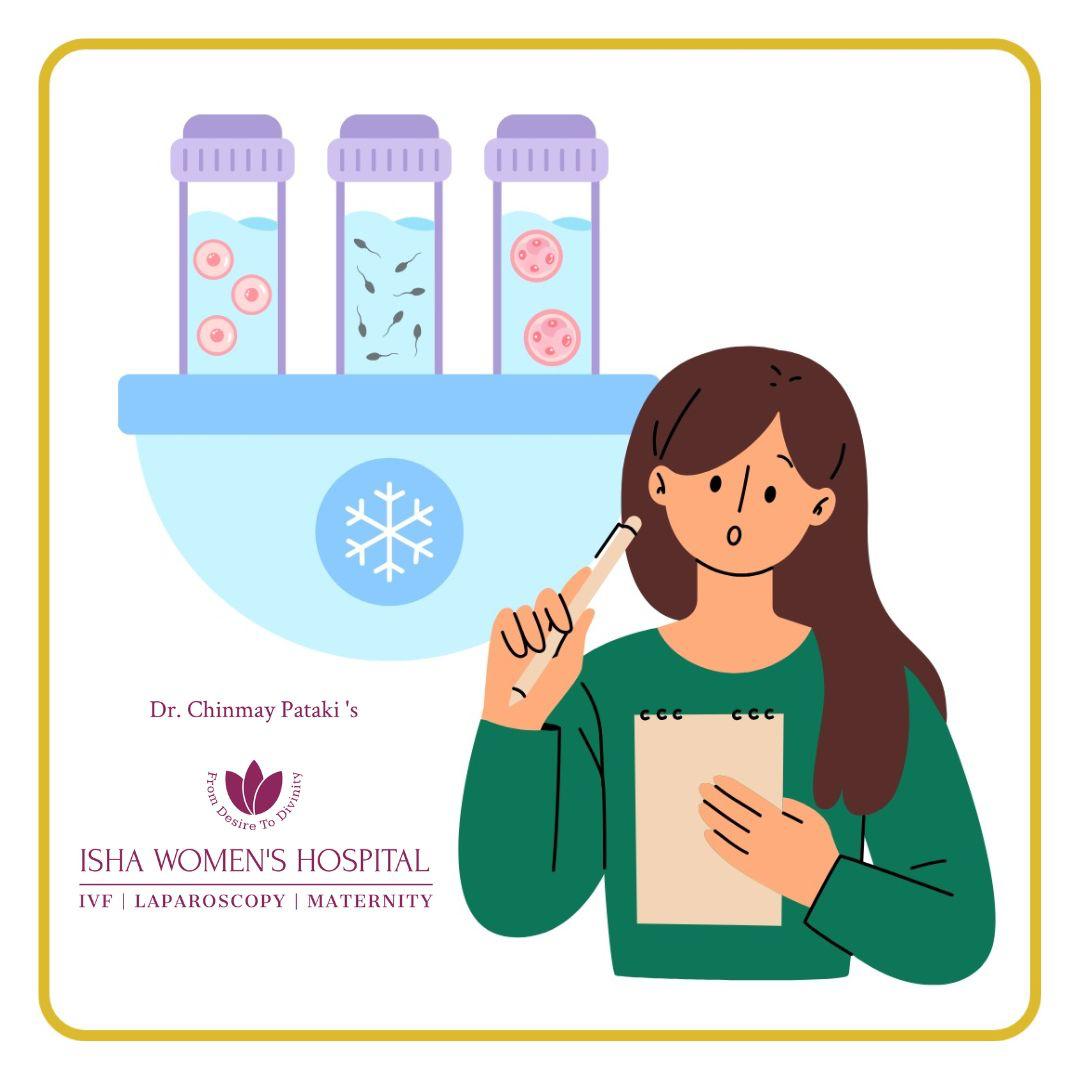Fertility Preservation: Options to Safeguard Your Future Fertility

Fertility relies on the proper functioning of the reproductive system in both men and women. For women, fertility is
Factors Affecting Fertility
- Age: The biological clock plays a significant role in fertility. Women are born with a finite number of eggs, so it declines significantly with increasing age. Thereby, decreasing the chance of conception in advanced ages.
- Lifestyle Choices: Habits like smoking, excessive alcohol consumption, poor diet, and lack of exercise can negatively impact both male and female fertility.
- Medical Conditions: Endometriosis, polycystic ovary syndrome (PCOS), and other reproductive disorders impair fertility. Similarly, among men, issues like low sperm count or poor sperm motility are the contributing factors.
- Cancer Treatments: Chemotherapy, radiation, and surgery for cancer reduce fertility in both men and women, as these treatments harm reproductive organs and cells.
- Environmental Factors: Exposure to toxins, such as chemicals or radiation, damages reproductive organs and affects hormone balance, leading to fertility challenges.
Why Consider Fertility Preservation?
- To protect Fertility Before Medical Treatments such as chemotherapy, radiation, or surgeries for cancer or other conditions that can harm reproductive health. Preserving eggs, sperm, or embryos before treatment can secure your chance of having biological children later.
- To Delay Parenthood for Personal or Professional Reasons, fertility preservation can help plan the future without compromising on reproductive health.
- Under the Risk of Premature Ovarian Failure or Early Menopause due to genetic factors or medical conditions, preserving eggs or embryos offers the security of being able to conceive later in life.
- Fertility preservation provides flexibility for future family planning, allowing couples and individuals to decide when the time is right for parenthood without the pressure of a ticking biological clock.
Fertility Preservation Options:
1. Egg Freezing (Oocyte Cryopreservation)
2. Sperm Freezing (Semen Cryopreservation)
3. Embryo Freezing
4. Ovarian Tissue Freezing
5. Testicular Tissue Freezing
Frequently Asked Questions (FAQs)
Answer: Fertility preservation involves safeguarding a person’s ability to have biological children in the future. This typically includes freezing eggs, sperm, or embryos. It is ideal for individuals facing medical treatments (like cancer therapy), age-related fertility concerns, or those planning to delay parenthood.
2. Who should consider fertility preservation?
Answer: Fertility preservation is recommended for:
- Women and men undergoing cancer treatments (chemotherapy, radiation)
- Women with endometriosis, PCOS, or a family history of early menopause
- Couples delaying parenthood due to career, education, or personal reasons
- Individuals undergoing gender transition
- Anyone wanting to preserve fertility while still healthy and young
3. What are the options available for fertility preservation?
Answer: At Isha Women’s Hospital, we offer:
- Egg freezing (oocyte cryopreservation)
- Sperm freezing
- Embryo freezing (for couples)
- Ovarian tissue freezing (in special cases)
These advanced techniques allow patients to use their preserved reproductive material whenever they’re ready for parenthood.
4. Does fertility preservation guarantee future pregnancy?
Answer: While fertility preservation significantly increases your chances of conception later, it does not guarantee pregnancy. Success depends on age at the time of freezing, egg or sperm quality, and overall reproductive health. Earlier preservation typically results in better outcomes.
5. When is the best time to preserve fertility?
Answer: The best time is before age 35 for women and while sperm quality is optimal for men. For those undergoing medical treatments, fertility should be preserved before therapy begins. A fertility specialist can help you decide the right time based on your individual circumstances.
Conclusion
Dr. Chinmay Pataki, the best and ideal Fertility expert can offer you the best and most accurate guidance regarding fertility preservation options to help you
make the best decisions for your future. The experienced team of Isha Women’s Hospital led by Dr. Chinmay Pataki, is dedicated to offering personalized fertility care, ensuring that your dreams of parenthood can become a reality when the time is right.
If you're considering fertility preservation, now is the perfect time to consult with a fertility specialist and start planning for your future.
Contact us at Isha Women’s Hospital today to learn more about your options and begin your journey toward safeguarding your fertility.
